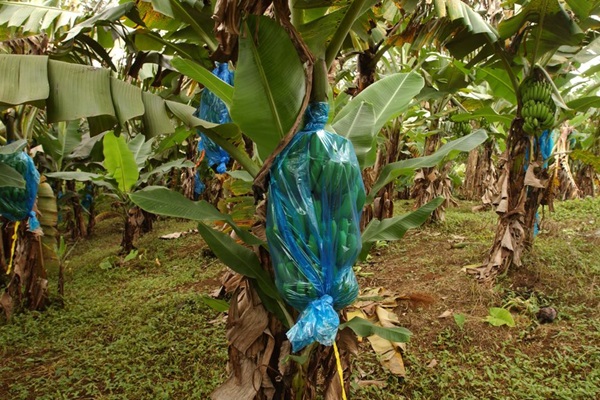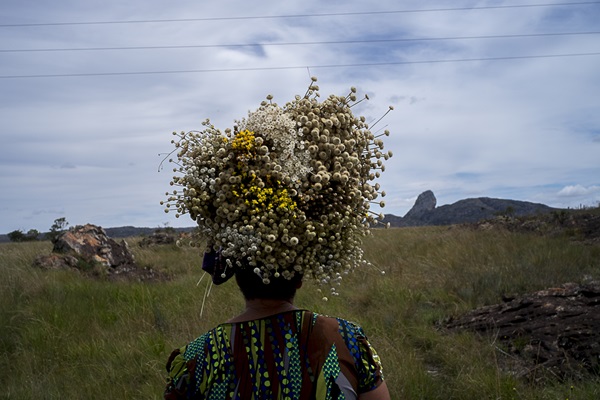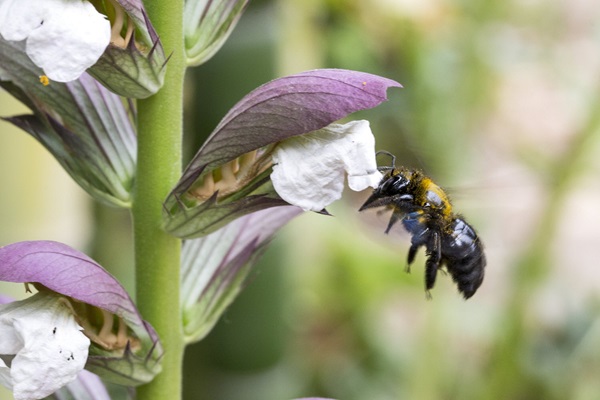News

G20 Agriculture Ministers: "Agrifood systems must be part of the solution to the biodiversity and climate crises," FAO Director-General says
16/06/2023
QU Dongyu addresses meetings in Hyderabad on topics including food security and biodiversity.

Breaking the plastic cycle in agriculture for biodiversity benefits
05/06/2023
Existing data suggests that only a small fraction of agricultural plastics is collected and recycled, while most are buried or landfilled, resulting in negative impacts to ecosystems, biodiversity and human health.

World Oceans Day must be Humans Day: FAO Fisheries chief
05/06/2023
Interview with the Director of FAO’s Fisheries and Aquaculture Division, Manuel Barange.
The term aquatic foods refers to the 3000 different species of fish, mollusks, crustaceans and algae that we catch, and over 650 species that we culture. According to the expert, it is a huge biodiversity that offers exceptional long-term food opportunities and renewable solutions, if managed properly. Furthermore, growing many of them has a much lower environmental impact than growing land-based animal production systems.
The term aquatic foods refers to the 3000 different species of fish, mollusks, crustaceans and algae that we catch, and over 650 species that we culture. According to the expert, it is a huge biodiversity that offers exceptional long-term food opportunities and renewable solutions, if managed properly. Furthermore, growing many of them has a much lower environmental impact than growing land-based animal production systems.

Life support: The Global Biodiversity Framework is a crucial step toward preserving our planet's ecosystems
01/06/2023
Biodiversity is the basis of life on Earth. We live biodiversity, we eat biodiversity and we are biodiversity. Without it, our world would be lifeless. The Earth's diverse ecosystems provide us with essential services, from clean air and water to food and medicine. In today's rapidly changing world, one of the most pressing challenges we face is the alarming loss of biodiversity.

Africa, Caribbean and Pacific Conference on the Implementation of the Outcomes of the CBD COP15 and Cites Cop19
01/06/2023
The African Union Commission through its Directorate of Sustainable Environment and Blue Economy (SEBE) will organize the Africa, Caribbean and Pacific High Level Conference on the implementation of the Outcomes of the Fifteenth Conference of the Parties (CoP15) to the United Nations Convention on Biological Diversity (CBD) and the Nineteenth Conference of the Parties (CoP19) to the Convention on the International Trade in Endangered Species of Wild Fauna and Flora (CITES).

2023 Globally Important Agricultural Heritage Systems (GIAHS) Certificate Award Ceremony and GIAHS Exhibition
22/05/2023
Since 2018, 24 new GIAHS in 12 countries have been designated. They represent not only stunning natural landscapes but also agricultural practices that create livelihoods in rural area...

Mongolia's livestock breeds, a precious part of global biological diversity
22/05/2023
Amidst the vast expanse of Mongolia's high altitude Great Plateau, a remarkable story unfolds - one of endurance, adaptation, and unwavering resilience. The nation's unique livestock breeds are a symbol of pride and a vital backbone of the country's economy. Today, on this International Day for Biological Diversity, we celebrate not only Mongolia’s livestock diversity, but also the herders that have developed and maintained them for thousands of years.

Celebrating the diversity of Globally Important Agricultural Heritage Systems
22/05/2023
The Food and Agriculture Organization of the United Nations on 22 May opened a two day series of events and immersive experiences, highlighting the key role of its programme of Globally Important Agricultural Heritage Systems (GIAHS) in preserving biodiversity and livelihoods and strengthening the nexus between humans and the environment which nurtures us and produces our food.

The Moroccan beekeepers’ mission to preserve the Saharan Yellow Bee
20/05/2023
Changing the fate of an extraordinary bee species for the benefit of all: FAO, the Moroccan government and local beekeepers are making it their mission to save the Saharan yellow bee whose importance to the region’s ecosystems and biodiversity cannot be understated.
4300aa4df7514ce7b7831612b497834f.tmb-th600x400.png?Culture=en&sfvrsn=75ac6d64_1)
Bee-ing grateful to our pollinators
20/05/2023
Pollination is one of nature’s most important processes contributing to biodiversity. It helps us to produce a wide variety of plants many of which are also food crops. An estimated 90 percent of the world’s flowering plants depend on pollination for reproduction. And though often overlooked, bees and forest beekeeping also help sustain forest ecosystems as pollination helps the regeneration of trees which in turn helps to conserve forest biodiversity.
